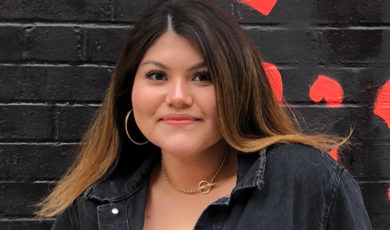Upgrade Your Summer Reading List with These Life-Changing Titles
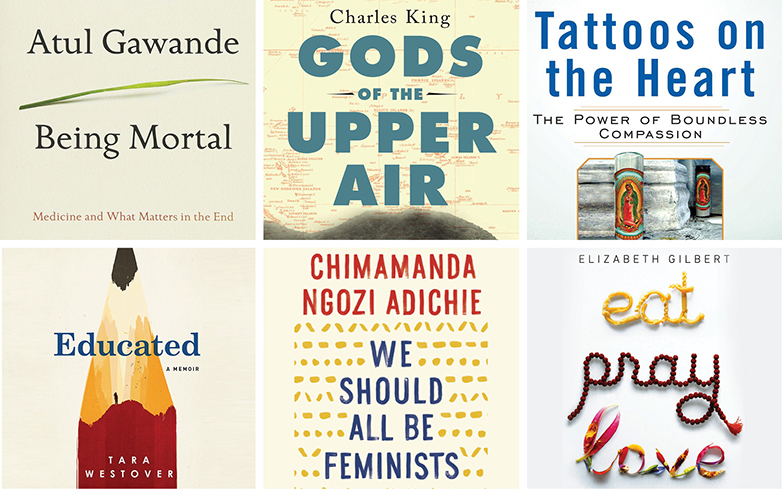
We’re all about a light beach read, spending time with an artist monograph or picking up the paper, but there’s a special place in our hearts for those books that are truly life-changing. And that’s certainly something we have in common with the incredible team at Room To Read. A beneficiary of The Power of Good Fund by bareMinerals, this non-profit is focused on empowerment through education — with literacy as a special focus. Needless to say, their staff has strong feelings about the power of literature, and was kind enough to share their own favorite titles, and how they changed their lives.
Tattoos on the Heart: The Power of Boundless Compassion by Gregory Boyle

Chosen by Christabel Pinto, Senior Director, Global Literacy Program
Where are you from?
Tanzania and the U.S.
Tell us a bit about the book you picked.
I laughed out loud. I wept tears of sorrow. I was deeply moved. I felt so many emotions within 212 pages. Tattoos on the Heart, a creative nonfiction book by Gregory Boyle, is the most inspiring book I have read this year. It transported me to Los Angeles, CA, the gang capital of the world, where I was a witness to the unspeakable burdens that some people have to carry and the transformative power of love and universal kinship that is at the heart of a gang intervention program called Homeboy Industries. As I read about the experiences of gang members like Andres and Rigo, their successes delighted me while their hardships made my heart ache. I may never meet gang members in person, but my lens on their experience is now imbued with a profound sense of empathy.
What is a quote from the book that you particularly like?
“Here is what we seek: a compassion that can stand in awe at what the poor have to carry rather than stand in judgment at how they carry it.”
Gods of the Upper Air: How a Circle of Renegade Anthropologists Reinvented Race, Sex, and Gender in the Twentieth Century by Charles King
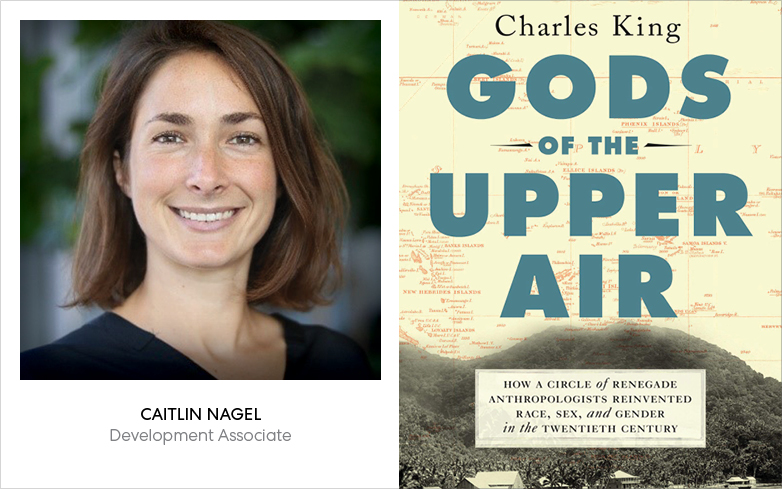
Chosen by Caitlin Nagel, Development Associate
Where are you from?
New York, NY
Tell us a bit about the book you picked.
Gods of the Upper Air is the story of Franz Boas and his “circle of renegade anthropologists” (including Margaret Mead and Zora Neale Hurston) who helped the U.S. to establish anthropology as a discipline and confronted the falsities of scientific racism and gender norms.
How did this book change your life?
It was fascinating to read about the origins of racism in the U.S. that still pervades our culture today and to know that people have been disproving this falsehood and fighting against this discrimination since the early 1920s. It was especially thrilling to learn more about Margaret Mead, who questioned male/female binaries and monogamy in 1930 and lived in defiance of the gender and relationship norms of the time (and those that very much still exist today).
What’s a positive lesson that anyone can learn from reading the book you chose?
As people we are far more alike than we are different. Get closer, get uncomfortable, and be aware of when you are judging something or someone through the lens of your own culture.
What is a quote from the book that resonated with you?
“The best thing any of us can do to expand our circle of moral compassion, is to try as hard as possible to divest yourself of the opinions common to the environment in which you were born when considering the lives of others.”
Being Mortal: Medicine and What Matters in the End by Atul Gawande

Chosen by Lawrence Yuan, Finance Manager
Where are you from?
San Francisco, CA
Tell us a bit about the book you picked (2-3 sentences).
Being Mortal: Medicine and What Matters in the End by Atul Gawande. This book is an honest and hopeful conversation about aging, terminal illness, geriatric care, mortality and death.
How did this book change your life?
I couldn’t capture better myself than this quote from the book: “One has to decide whether one’s fears or one’s hopes are what should matter most.”
What’s a positive lesson that anyone can learn from reading the book you chose?
This book gave me some new and fresh perspectives to this ultimate question of life.
We Should All Be Feminists by Chimamanda Ngozi Adichie
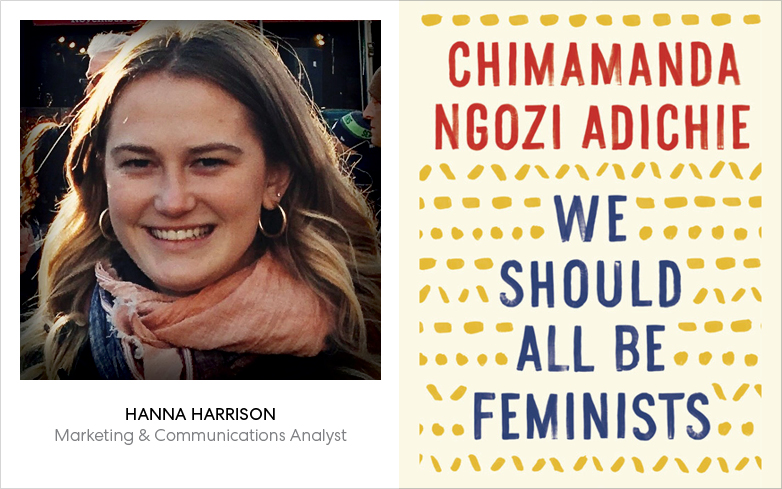
Chosen by Hanna Harrison, Marketing & Communications Analyst
Where are you from?
San Francisco, CA
Tell us a bit about the book you picked.
This book takes a look at 21st century feminism and analyzes what it means to be a feminist. There is often a misconception that feminism seeks to make women superior to men, when in reality, gender equality benefits all people.
How did this book change your life?
This book helped me reflect on ways in which I can be a better feminist and gender equality advocate – particularly ways in which I can advocate for myself, other women, and ensuring that we all center the voices of marginalized communities while doing so.
What’s a positive lesson that anyone can learn from reading the book you chose?
Gender equality is something everyone should strive for. Traditional ideas of both femininity and masculinity are often incredibly harmful, and a gender equal society would create space for all people to be their authentic selves.
What is a quote from the book that you particularly like?
“Gender as it functions today is a grave injustice. I am angry. We should all be angry. Anger has a long history of bringing about positive change. But I am also hopeful, because I believe deeply in the ability of human beings to remake themselves for the better.”
Educated by Tara Westover
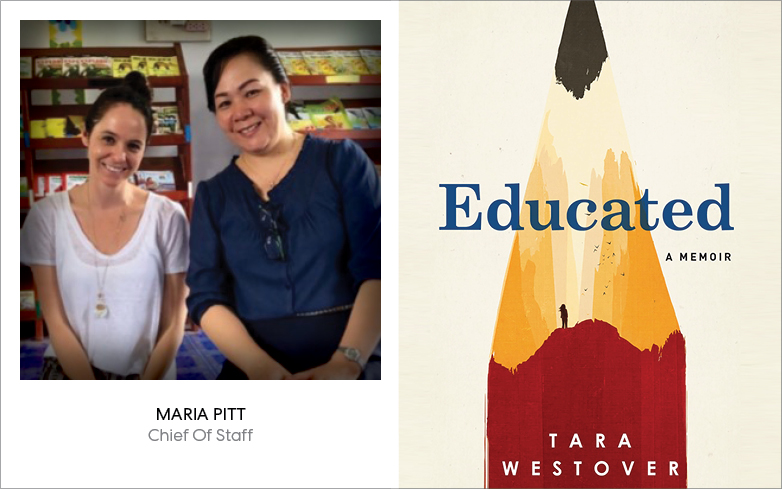
Chosen by Maria Pitt, Chief of Staff
Where are you from?
Berkeley, CA
Tell us a bit about the book you picked.
Educated is a memoir and Tara describes her educational journey, the challenges she overcame and the importance of education on broadening her worldview and independence.
How did this book change your life?
The author taught me to never underestimate my personal strength and resilience, and that fear can often hold you back from reaching your full potential.
What’s a positive lesson that anyone can learn from reading Educated?
The power of education and its ability to unlock personal growth and fulfillment.
What is your favorite quote from this memoir?
“My life was narrated for me by others. Their voices were forceful, emphatic, absolute. It had never occurred to me that my voice might be as strong as theirs.”
Just Mercy by Bryan Stevenson
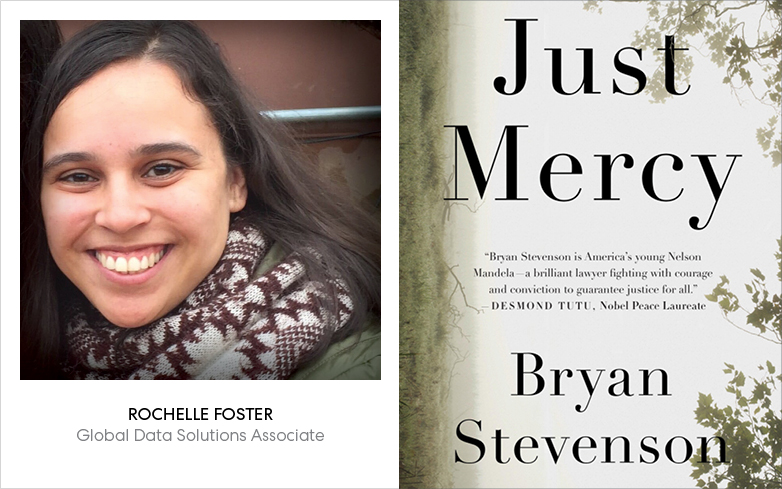
Chosen by Rochelle Foster, Global Data Solutions Associate
Where are you from?
San Francisco, CA
Tell us a bit about the book you picked.
Reading is often the main source of learning for me. I love reading about new topics or subjects I don’t have a lot of knowledge of. Just Mercy was a book that allowed me to learn about an often misrepresented and complicated subject, the U.S. criminal justice system, with a humanitarian lens placed over it. It was a book that injected humanity and connection into a dense and complex system.
How did this book change your life?
Just Mercy taught me the importance of connection, and if we had more people like Bryan Stevenson working in the criminal justice system, we’d see far fewer incarcerations and far fewer broken families.
What’s a positive lesson that anyone can learn from reading the book you chose?
Don’t put people into boxes based on your own internal biases and be strong enough to empathize with people who are different than yourself.
What is a quote from the book that you found particularly impactful?
“We are all implicated when we allow other people to be mistreated. An absence of compassion can corrupt the decency of a community, a state, a nation. Fear and anger can make us vindictive and abusive, unjust and unfair, until we all suffer from the absence of mercy and we condemn ourselves as much as we victimize others. The closer we get to mass incarceration and extreme levels of punishment, the more I believe it’s necessary to recognize that we all need mercy, we all need justice, and-perhaps-we all need some measure of unmerited grace.”
Leadership on the Line by Marty Linsky and Ronald Heifetz
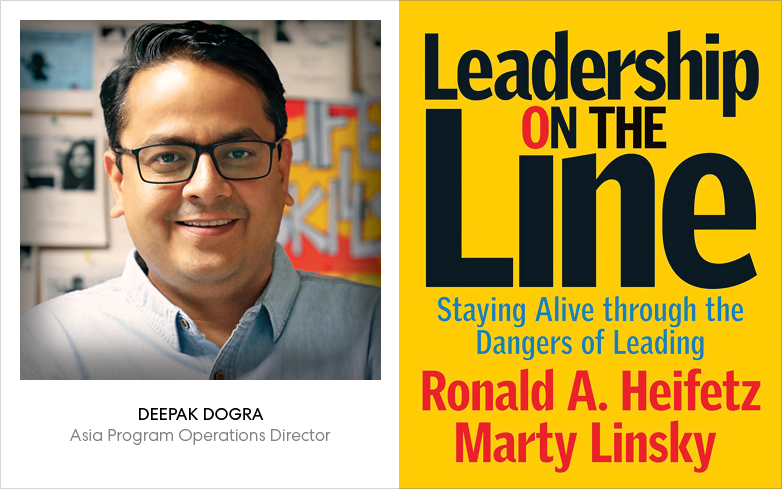
Chosen by Deepak Dogra, Asia Program Operations Director
Where are you from?
New Delhi, India
Tell us a bit about the book you picked.
This is one of the best books I have read and rather implemented on leadership. It puts tremendous emphasis on adaptive leadership which essentially questions the conventional understanding of the term “leadership” and differentiates it from authority. It goes on to delve deeper into the nuances of leadership and orchestrating a successful change.
How did this book change your life?
This book influenced me in many different ways. It impacted the way I approach any challenge at workplace or in life, and made me look at various aspects of a challenge (more like a system analysis). It pushes you to reflect beyond your current limitations and blind-spots, and questions and challenges the way “leadership” is perceived.
What’s a positive lesson that anyone can learn from reading the book you chose?
Leadership is an activity.
What is a quote from the book that you particularly like?
“People do not resist change, per se. People resist loss.” Also, “The single most common source of leadership failure is that people, especially those in the positions of authority, treat adaptive challenges like technical solutions.”
Eat, Pray, Love by Elizabeth Gilbert

Chosen by Jacqueline da Costa, Development Manager
Where are you from?
San Francisco, CA
Tell us a bit about the book you picked.
I chose Eat, Pray, Love by Elizabeth Gilbert for a few reasons. I love to travel and the way she writes the book makes you feel like you are traveling along with her. I was also so inspired by her courage to really listen to herself and make the changes that felt true to her. There is so much pressure, for women especially, to follow a certain path of getting married and having kids because it’s the societal thing to do and this book helped me realize that doesn’t have to be the case and that you can be happy if you chose a different way.
How did this book change your life?
This book changed my life because it opened my eyes to possibilities of new life paths. It helped give me the courage to make some changes in my life that have influenced my ultimate trajectory of where I am now.
What’s a positive lesson that anyone can learn from reading the book you chose?
Your life’s path is up to you; just because you start somewhere doesn’t mean that is where you have to end up. Everyone who comes into your life serves a purpose that helps you along the way on your personal journey — even if they don’t ultimately remain in your life in the long term.
What is a quote from the book that you particularly like?
“I’ve come to believe that there exists in the universe something I call ‘The Physics of The Quest’ — a force of nature governed by laws as real as the laws of gravity or momentum. And the rule of Quest Physics maybe goes like this: ‘If you are brave enough to leave behind everything familiar and comforting (which can be anything from your house to your bitter old resentments) and set out on a truth-seeking journey (either externally or internally), and if you are truly willing to regard everything that happens to you on that journey as a clue, and if you accept everyone you meet along the way as a teacher, and if you are prepared – most of all – to face (and forgive) some very difficult realities about yourself… then truth will not be withheld from you.’ Or so I’ve come to believe.”
In the Time of the Butterflies by Julia Alvarez
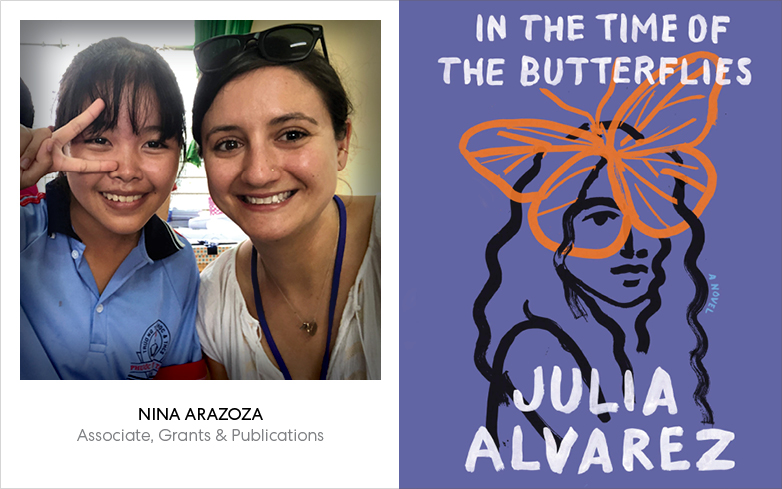
Chosen by Nina Arazoza, Associate, Grants & Publications
Where are you from?
Rochester, NY
Tell us a bit about the book you picked.
In the Time of the Butterflies by Julia Alvarez is a historical novel about four sisters during the Trujillo dictatorship in the Dominican Republic.
How did this book change your life?
It is the first work of historical fiction that I remember reading. Since then, I have come to love historical fiction as a means to learn about different times, places and cultures, especially those that the traditional education system in the U.S. typically skips over. I remember reading this novel and wondering why my history classes had not taught me anything about the Dominican Republic or Trujillo.
What’s a positive lesson that anyone can learn from reading the book you chose?
Be skeptical of the information that is presented to you and who is presenting it, and never stop seeking knowledge.
What is a quote from the book that you particularly like?
“It’s about time we women had a voice in running our country.”
Homegoing by Yaa Gyasi
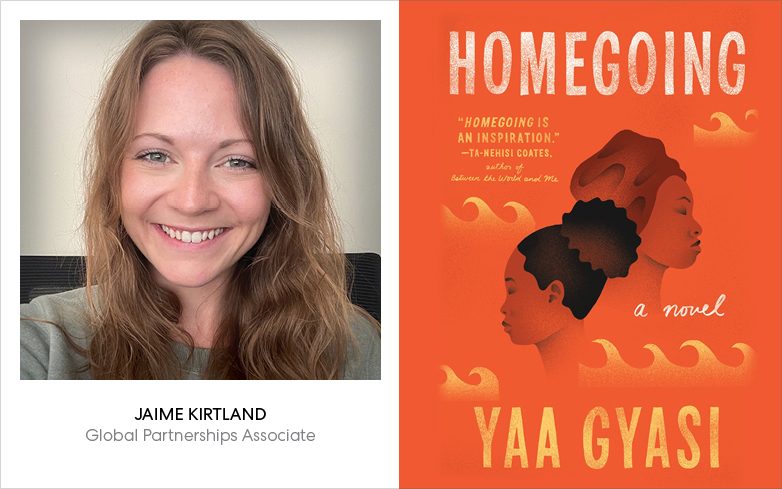
Chosen by Jaime Kirtland, Global Partnerships Associate
Where are you from?
Boston, MA
Tell us a bit about the book you picked
Homegoing, by Yaa Gyasi, is about the lives of two half-sisters born into different villages in 18th century Ghana, and the story of how their lives turn out to be vastly different and the impacts of historical forces on their families and communities through generations. This is Yaa Gyasi’s debut novel and her writing is incredible — she packs in so much history and context and the story is unforgettable.
How did this book change your life?
This book made me think a lot about history and where we get our information from — what voices and perspectives are represented and which are not. I appreciated how much she packed into the book and the way it pushed my thinking and perspective.
What’s a positive lesson that anyone can learn from reading the book you chose?
Be willing to listen and seek to understand the lived experiences of others.
What is your favorite quote from Homegoing?
“We believe the one who has power. He is the one who gets to write the story. So when you study history, you must ask yourself, whose story am I missing? Whose voice was suppressed so that this voice could come forth? Once you have figured that out, you must find that story too. From there you get a clearer, yet still imperfect, picture.”
Homegoing by Yaa Gyasi
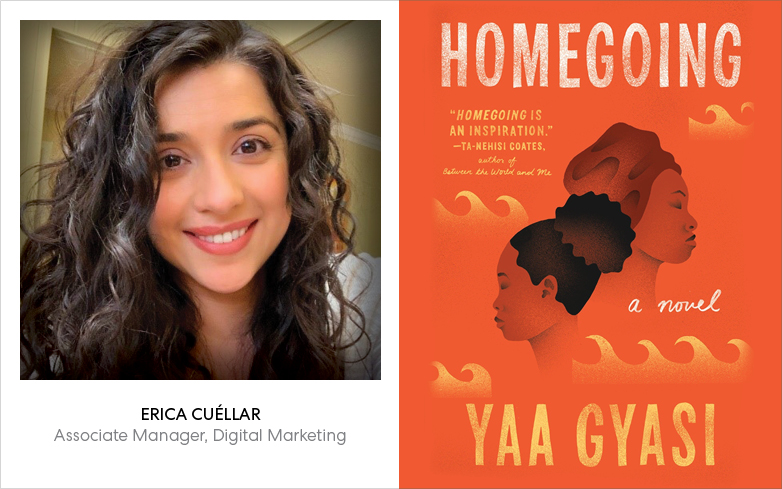
Also chosen by Erica Cuéllar, Associate Manager, Digital Marketing
Where are you from?
San Francisco, CA
Tell us a bit about the book you picked.
It’s a novel that spans 300 hundred years in Ghana and becomes an unforgettable American novel. It explores how individual lives were shaped generation after generation by historical forces beyond their control.
How did this book change your life?
Perspective. One of my best friends is Ghanaian and we read it together as part of a small book club. This was the first instance I ever saw her culture depicted on a larger stage and the effect that representation on her and myself, as her friend, was unforgettable.
What’s a positive lesson that anyone can learn from reading the book you chose?
This book taught me that individual stories and circumstances are shaped by larger forces that often go unseen or unnoticed. Context is everything.





